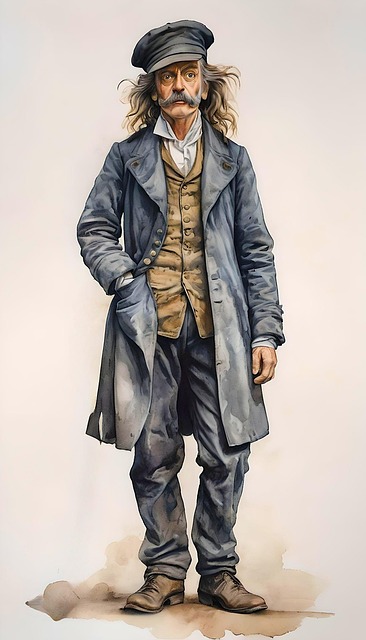Commercial Driver DUI cases face unique challenges due to demanding schedules, long hours, and stricter regulations, exacerbated by the integration of technology in their operations. However, Tech Solutions for Impaired Driving are revolutionizing safety efforts, leveraging advanced tools like breathalyzer devices, real-time monitoring systems, and mobile fleet management apps to prevent accidents and ensure fair legal representation. These solutions use data analytics and AI to monitor driver behavior, detect impairment patterns, foster accountability, and significantly improve road safety. In the evolving commercial DUI defense field, technology is transforming strategies and outcomes, enabling more accurate representations and equitable results for accused drivers.
In the realm of transportation, Commercial Driver DUI (Drying Under the Influence) presents unique challenges. This article explores the intricate legal implications and delves into innovative tech solutions aimed at preventing impaired driving among commercial operators. We examine how technology is revolutionizing defense strategies, focusing on real-time monitoring and risk mitigation. By harnessing Tech Solutions for Impaired Driving, the industry can foster safer roads and navigate the legal complexities associated with DUI cases.
- Understanding Commercial Driver DUI: The Unique Challenges and Legal Implications
- The Role of Technology in Preventing Impaired Driving for Commercial Drivers
- Innovative Tech Solutions for Real-Time Monitoring and Risk Mitigation
- Case Studies: How Technology is Revolutionizing Commercial DUI Defense Strategies
Understanding Commercial Driver DUI: The Unique Challenges and Legal Implications

Commercial Driver DUI cases present a unique set of challenges due to the nature of their operations. These individuals, responsible for transporting goods and people across vast distances, often face demanding schedules and long hours behind the wheel—factors that can contribute to fatigue and impaired judgment. Unlike regular drivers, commercial operators are subject to stricter regulations and penalties, with consequences ranging from license suspension to criminal charges.
The legal implications extend further due to the integration of technology in their daily tasks. Advanced systems designed for fleet management, log tracking, and safety monitoring can inadvertently leave digital footprints that law enforcement may use as evidence during DUI investigations. This raises concerns about privacy rights and highlights the need for tech solutions for impaired driving tailored specifically to commercial drivers, focusing on both preventing accidents and ensuring fair legal representation.
The Role of Technology in Preventing Impaired Driving for Commercial Drivers

Technology plays a pivotal role in preventing impaired driving for commercial drivers, offering innovative solutions to tackle this critical issue. Advanced tech solutions like breathalyzer devices and real-time monitoring systems are becoming standard equipment in commercial vehicles. These tools help ensure that drivers remain sober during operation, significantly reducing the risk of accidents caused by alcohol or drug impairment.
Additionally, mobile apps designed for fleet management provide managers with valuable insights into driver behavior, allowing them to implement targeted safety programs. By leveraging data analytics and artificial intelligence, these tech solutions can identify patterns indicative of impaired driving and prompt timely interventions. This proactive approach not only keeps roads safer but also fosters a culture of accountability and responsibility among commercial drivers.
Innovative Tech Solutions for Real-Time Monitoring and Risk Mitigation

In the realm of Commercial Driver DUI Defense, innovative tech solutions are transforming how we approach impaired driving. These advanced technologies offer real-time monitoring capabilities, providing a robust risk mitigation strategy for commercial drivers. By leveraging data and artificial intelligence, tracking devices can detect unusual behavior patterns indicative of impairment, alerting authorities before any potential hazards arise. This proactive approach not only enhances safety on the roads but also ensures compliance with stringent regulations governing commercial transportation.
Tech solutions for impaired driving play a pivotal role in fostering a safer environment. They enable continuous observation, allowing for immediate intervention when necessary. Moreover, these technologies offer a more precise and effective way to gauge driver fitness, reducing false positives and negatives associated with traditional methods. As the digital era advances, such innovations are sure to revolutionise how we address and prevent drunk driving among commercial drivers.
Case Studies: How Technology is Revolutionizing Commercial DUI Defense Strategies

In the realm of commercial DUI defense, technology is playing a pivotal role in revolutionizing strategies and outcomes. Case studies reveal that advanced tech solutions for impaired driving are transforming legal approaches. For instance, innovative data analytics tools enable lawyers to scrutinize evidence more effectively, enhancing their ability to challenge prosecution claims.
These tech solutions include sophisticated breathalyzer analysis software, which can detect even minute variations in blood alcohol levels, providing stronger defenses. Additionally, GPS tracking and vehicle diagnostics systems offer real-time data on driver behavior, potentially exonerating commercial drivers accused of DUI. Such technological advancements are reshaping the landscape of commercial DUI defense, ensuring more accurate representations and just outcomes for those faced with these charges.
The commercial driver DUI defense landscape is undergoing a profound transformation, driven by advanced Tech Solutions for Impaired Driving. As technology continues to evolve, it offers innovative monitoring and risk mitigation strategies that can help prevent and address impaired driving among commercial operators. By leveraging real-time data and cutting-edge tools, legal professionals can better navigate the unique challenges posed by these cases, ensuring fair outcomes for all parties involved. This shift not only strengthens road safety but also showcases how technology can revolutionize traditional defense methods in the commercial transportation sector.






